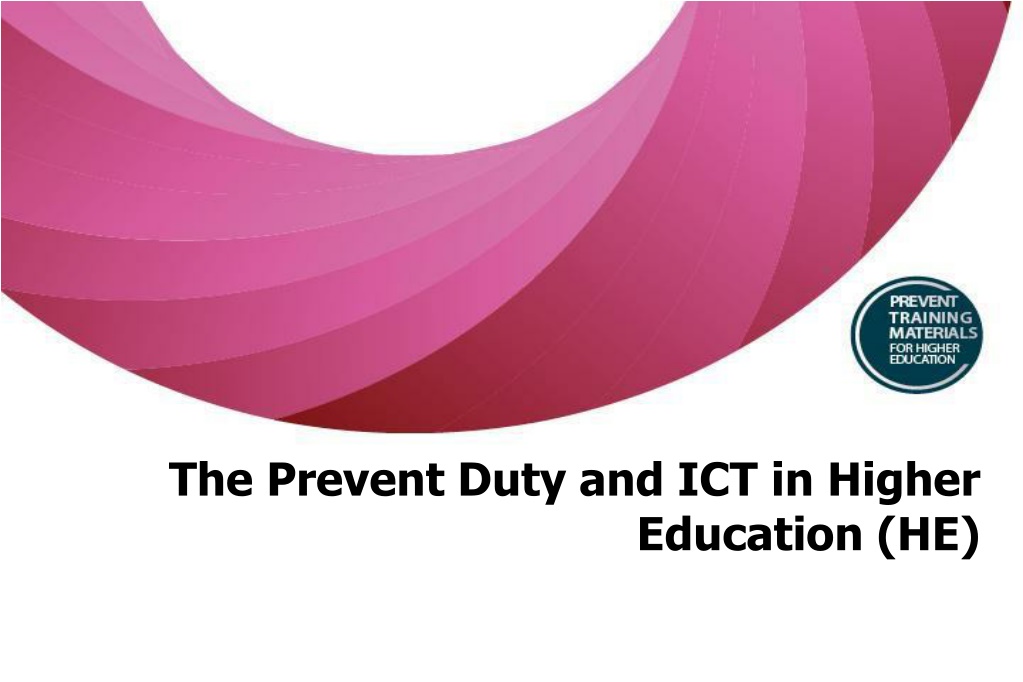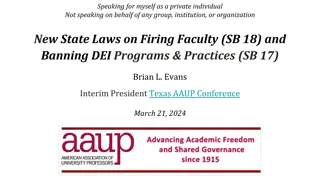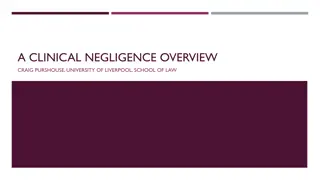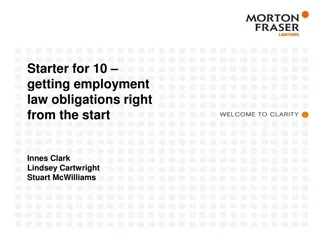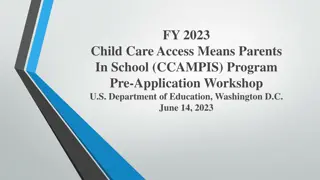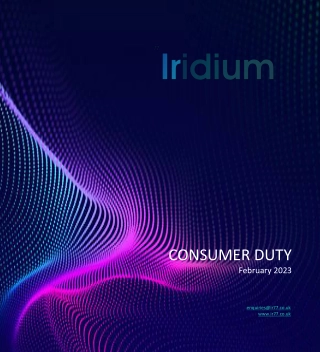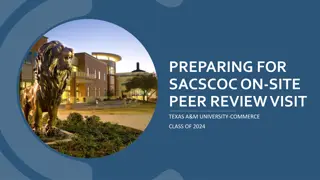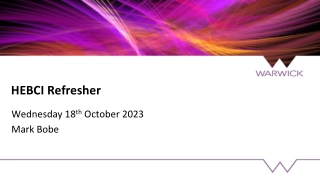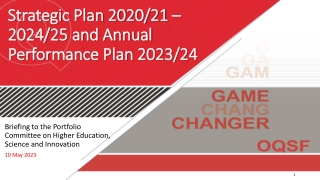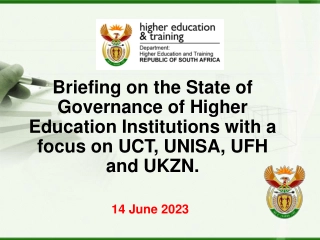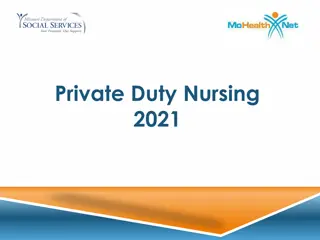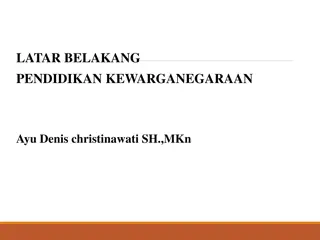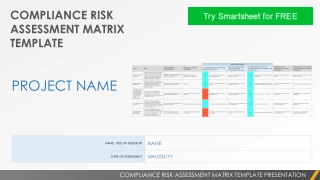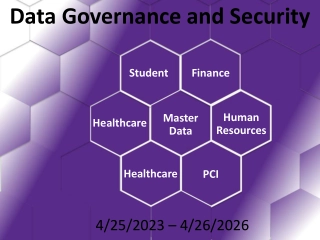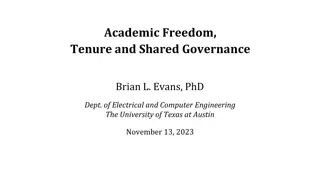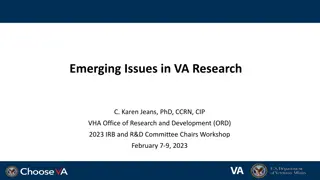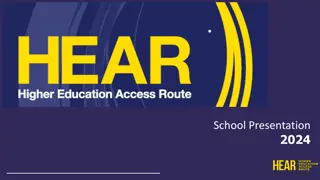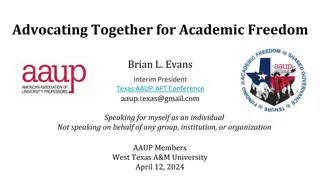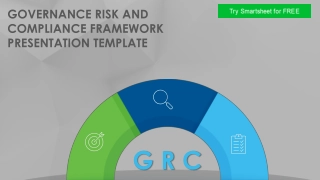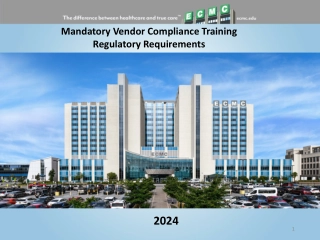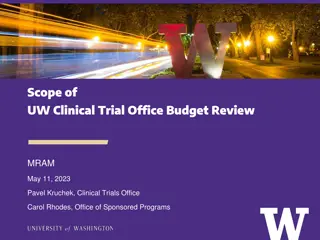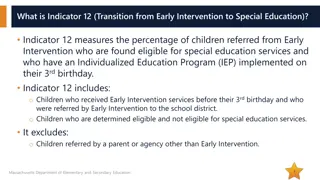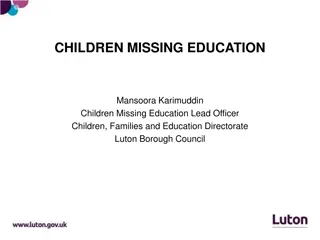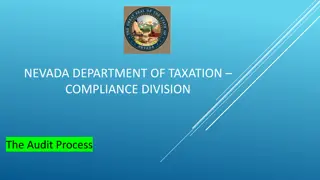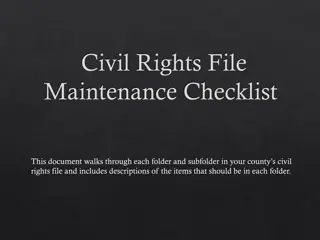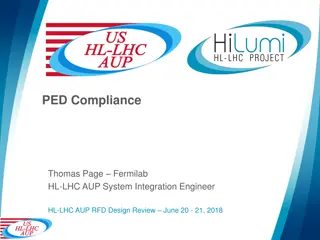Ensuring Compliance with Prevent Duty in Higher Education
Statutory guidance emphasizes the importance of integrating the Prevent duty into ICT policies in Higher Education. Key points include the need for Acceptable Use Policies (AUPs) to reference the Prevent duty, effective communication of AUPs, and the consideration of web filtering. While filtering in higher education is debated, institutions are encouraged to review and update their Prevent risk assessments and action plans regularly.
Download Presentation
Please find below an Image/Link to download the presentation.
The content on the website is provided AS IS for your information and personal use only. It may not be sold, licensed, or shared on other websites without obtaining consent from the author. Download presentation by click this link. If you encounter any issues during the download, it is possible that the publisher has removed the file from their server.
Presentation Transcript
The Prevent Duty and ICT in Higher Education (HE)
What does the statutory guidance say? Paragraphs 27 and 28 of the higher education-specific guidance discuss IT policies, there are 3 points in particular to highlight: Acceptable use policies (AUPs) should contain specific reference to the statutory duty. Institutions should consider the use of filters as part of their overall strategy to prevent people being drawn into terrorism. The expectation is for clear policies and procedures for students and staff working on sensitive or extremism-related research.
Acceptable Use Policies (AUPs) Reference to the Prevent statutory duty in AUPs is relatively straightforward and submissions to OfS (previously HEFCE) so far show that the sector has complied with this expectation. Jisc s advice is that many AUPs already state that ICT services must be used to further the organisation s education and research purposes and in accordance with the law. Institutions should update AUPs to refer to the Prevent duty to prevent people (students and staff) being drawn into terrorism.
Communicating AUPs Policies alone are not sufficient to achieve compliance they must be properly communicated and applied. Reference to AUPs needs to be explicit and form part of staff and student induction as well as being contained within other procedures (staff and student discipline for example). It is important that any changes to policies and procedures are communicated effectively
Web filtering As noted, the guidance is not prescriptive about filtering and requires only that institutions consider the use of filters. The OfS monitoring framework requires that institutions report annually and requires confirmation that the institution has reviewed, and where necessary updated its Prevent risk assessment and action plan . Regular review of the use of filters is therefore recommended.
Filtering in the Higher Education context Filtering is a contentious topic and arguments against its extensive use are well-rehearsed, and include the following: filtering is anti-educational students need to learn to discern, discriminate and evaluate. it prevents students from having access to information that will allow them to come to their own conclusions. construed as a threat to academic freedom. it could impede security sensitive research. filtering software does not work it often blocks legitimate sites. it is often unpredictable. determined students will circumvent it. Nonetheless web filtering policies are not unusual and take these concerns into account.
Filtering policies Despite the challenges of filtering, some institutions may still consider developing policies regarding filtering in the context of their implementation of Prevent. Institutions continue to take different approaches. Filtering and therefore blocking of illegal sites is possible. A search shows that where institutions publish policies there are some common features. In reviewing its own practice in this area, institutions may find it useful to review approaches elsewhere to inform its own decision on what will and will not work for them. JISC are able to provide further guidance in this area.
Reference to filtering in AUPs (1/2) Where filtering is employed, it is good practice to refer to such policies in AUPs as well as in filtering policies. This is usually within the section of the AUP which relates to appropriate use of the internet. Typically, users are warned that filtering is in place and examples of inappropriate use are listed, usually relating to access, storage and dissemination of materials from sites that reflect the institution s policy on filtering. This can include content that is: illegal (including sites that encourage illegal activity) contains obscene or deliberately offensive material contains discriminatory material likely to result in harassment or bullying of others. likely to draw people into terrorism.
Reference to filtering in AUPs (2/2) In the event that users attempt to access sites that are blocked, an appropriate message is usually transmitted, typically along the lines of: the access to this website has been denied in accordance with the IT acceptable use policy. Please check section access to the internet. Should you feel unduly unable to access a legitimate website, please contact the IT Support Centre.
Research and teaching sensitive topics (1/2) The following recommendations are taken from UUK s 2019 document on Research and Teaching on sensitive topics. The recommendations are: Procedures for dealing with security-sensitive research in UK universities should be embedded in research ethics approval processes. The collection, recording, possession, viewing on the internet, distribution, etc of security sensitive research material may be interpreted as committing an offence under the provisions of section 58 of the Terrorism Act 2000 and the Terrorism Act 2006 if not confined to use for purely academic research purposes. Such security sensitive research material should therefore be kept off personal computers and stored instead on specially designated university servers supervised by university ethics officers (or their counterparts) at one remove from university authorities. This material could be accessed easily and securely by researchers, and would not be transmitted or exchanged.
Research and teaching sensitive topics (2/2) Ethics officers (or their counterparts) should be a first, or early, point of contact for both internal university enquiries and police enquiries about suspect security sensitive material associated with a university or a university member. Such material should be treated as having a legitimate research purpose unless ethics officers (or their counterparts) cannot identify it or the relevant researcher responsible for it. The mechanism for storing security-sensitive material described above needs to be operated alongside comprehensive advice from universities to all university-based internet users, highlighting the legal risks of accessing and downloading from sites that might be subject to provisions of counter-terrorism legislation. Reading this advice should be a condition of getting a university email account. A training scheme should be offered to ethics officers (or their counterparts) and IT officers in universities about implementing the ethics review process and secure storage of sensitive material. Prevent leads should be involved in this training where relevant.
Summary (1/2) Acceptable use policies should refer to Prevent and what is and is not permissible. Students and staff should be made aware of these policies as part of induction and ongoing communications. RHEBs are required to regularly consider the use of filters as part of their overall strategy to prevent people from being drawn into terrorism whatever decision is taken institutions will need to demonstrate that appropriate consideration has been undertaken.
Summary (2/2) There are significant concerns about extensive filtering that are well rehearsed but some institutions already have policies in place that pre-date the Prevent statutory duty so may decide to extend filtering for Prevent. If so, these need to be proportionate to ensure that legitimate sites are not inadvertently and inappropriately blocked. For many other institutions, a decision not to filter may be appropriate to protect security sensitive research. That policies need to include safeguards that protect academic freedom is widely recognised and understood. AUPs and policies on filtering and on sensitive research need to be well communicated so that their purpose and related processes are understood by staff and students. The RHEB needs to balance its legal duties in terms of both ensuring freedom of speech and academic freedom, and also protecting student and staff welfare
